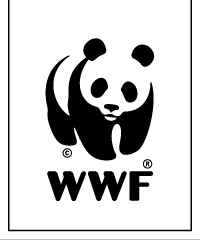Our objective is to ensure healthy marine ecosystems with rich fish stocks, which in turn will support fishing communities and a wider sustainable economic sector.
Sustainable fishery means that seas and fish populations are healthy and that fishing is profitable for fishers and local communities.
Our proposals:
The solutions that we propose are based on the ecosystem approach and on co-management with the participation of fishers themselves. Our proposals include establishing protected areas, increasing the selectivity of fishing gear, managing fishing efforts, promoting scientific research, educating and training fishers and implementing legislation through monitoring and inspections.
Protected areas
Protected areas can have a simple function—focusing on constraining fishing activities—or a more complex and holistic approach—addressing all coastal and marine human activities.
With respect to fishing, the establishment of protected areas is usually aimed at protecting fish breeding grounds and important marine species and ecosystems. They aim at the recovery of fish stocks, the increase of fish body weight (and thus the increase of breeding success), the increase of fishing production and, consequently, the mid- and long-term increase of fishery-generated income.
Selectivity
Increasing selectivity in all types of fishery (static nets, longlines, active gear, etc.) is a necessary precondition for reducing the bycatch of non-commercial fish and other marine organisms, including marine mammals, sharks (in Greek) and turtles.
It can be simple (increasing the mesh size of fishing nets to avoid catching smaller fish) or fairly complex (experimenting with different types of hooks depending on the target and bycatch species, e.g., longlines and sea turtles).
Fishing effort management
Managing the fishing effort can be achieved through various approaches, such as limiting it to specific areas during months that are important for fish breeding.
Scientific research
All decisions regarding fishing must be made taking into account substantiated scientific knowledge. Unfortunately, in Greece related research about fish stocks and the marine environment in general is still lacking. A telling example is the lack of mapping of Posidonia fields and coralline red algae habitats (in Greek).
Fisher education and training
Of equal importance is the lack of education and professional training of Greek fishers. Apart from raising awareness regarding the marine environment, education also aims at ensuring safety at sea, improving their know-how and practices and, hence, boosting competitiveness and conserving our knowledge and cultural heritage related to the sea.
Legislation implementation
All of the aforementioned proposals can only be effective with the implementation of legislation by the fishers themselves and through the monitoring and inspection of fishing activities. The various bodies that ensure legal conformity can operate on different levels, from Coast Guard port inspections before and after fishing to monitoring vessel activity at sea through VMS (vessel monitoring system) and market inspections in fish auctions and points of sale and consumption. Origin traceability is also an important factor. Overall, simply implementing existing legislation would make a great number of marine fishery issues a thing of the past.
National fishing strategy
A significant problem concerning the Greek marine fishing sector is the lack of an integrated National Fishing Strategy. A national strategy should take into account all of the aforementioned elements and set clear and specific goals based on a vision of sustainable and competitive Greek fishery.
We believe fishery in Greece can and must be sustainable. However, sustainability requires political will, the engagement of all interested parties and decision-making based on scientific knowledge. The necessary tools, know-how, institutional framework and funding (Operational Programme for Fisheries and European Fisheries Fund) are available, but brave political decisions are required to make the best of them.
Share this



